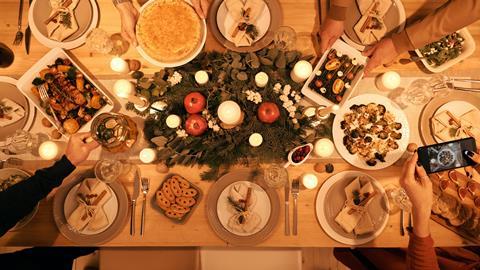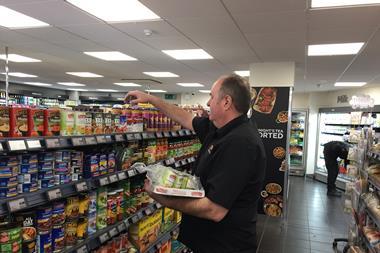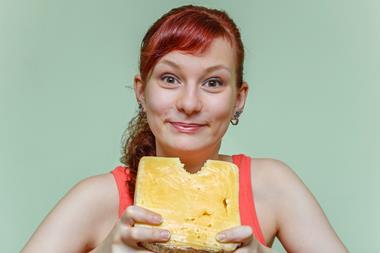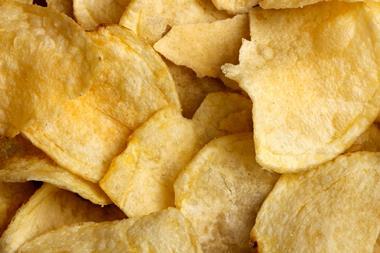Gen Zs are killing off the traditional Christmas dinner. Or so claimed a survey this week, which found more than half of 1,500 young Brits polled believed turkey and all the trimmings was “old-fashioned”.
In fact, 39% of the 18 to 30-year-olds surveyed said they would never eat turkey, 38% can’t stand brussels sprouts and 37% said they’d shun pigs in blankets.
Some of these attitudes were down to a growing aversion to meat in general among young people, suggested the study by Dopsu, a (surprise, surprise) plant-based meat alternatives brand.
It found 87% of the 18 to 30-year-olds polled believed it was essential to cater for vegetarians and vegans over Christmas, with 20% set to make a vegetarian stuffing, the same amount planning to serve a vegetarian gravy and 16% set to use plant-based meat alternatives.
That does reflect a wider trend among British households. Tesco’s recent Christmas report 2021 found over a quarter (27%) of UK adults surveyed would be catering for vegan, vegetarian or plant-based guests this Christmas.
But, interestingly, just one in 10 of those polled by Dopsu said meat was totally off the table this Christmas. Similarly, Tesco’s survey suggested meat was still on the festive menu for most households, with 68% of UK adults surveyed planning to tuck into a turkey roast on the 25th, and a quarter of 25 to 34-year olds set to stuff their faces with more than 10 pigs in blankets.
Whether opting for meat or plant-based options, most people (93%) in Dopsu’s survey agreed sustainability should play a big role when shopping for ingredients, with almost a third (27%) striving to make their festive meals more sustainable.
That chimes with Tesco’s findings that 36% of the nation plan on being more sustainable over the festive period, while 49% say thinking about the environment will have an impact on their purchasing.
It’s not all about eating ‘better’, though. Some young Brits just fancy something a bit different this Christmas, Dopsu’s research suggests. Indeed, 12% of those surveyed said they’d rather dig into a pizza on Christmas Day, while 17% will be preparing a Chinese meal and 16% will be rustling up a curry.
Opinions are divided on dessert, too. Dopsu’s study found that a third of young Brits ‘secretly’ dislike mince pies, more than a quarter (26%) can’t stand Christmas pudding, and 24% are not a fan of Christmas cake.
Tesco also found the popularity of Christmas pudding was waning, with those aged 65-plus over five times more likely to enjoy it compared with 18 to 24-year-olds (44% versus 8%), the latter preferring ice cream (13%) or chocolate desserts (11%).
When it comes to booze, meanwhile, red wine has overtaken white as the top choice to accompany Christmas dinner, according to Tesco’s report. It was chosen by 29% of UK adults, versus 27% for white, while in 2020 white wine was favoured by 29% and red 25%.
And while plenty of us will also be knocking back Baileys, port and a little bit of fizz on Christmas Day, almost a quarter (24%) of UK adults will be sticking to low & no alcohol tipples, Tesco found. More than one in 10 (13%) 18 to 30-year-olds surveyed by Dopsu said they would be drinking non-alcoholic wine or beer with their meal on the big day. Take your pick.
None of this is particularly surprising, given the trends we’ve seen evolving in grocery in recent years. This year’s Top Products Survey (out on Friday) shows plant-based is still booming, with the the meat-free market up 15.1% to £607.3m, despite the share price of meat-free unicorn Beyond Meat crashing in the last year.
Sales in the free-from category, meanwhile, hit £3.5bn this year (up from just £517.6m in 2014), thanks to seven years of consectutive growth, aided by a growing thirst for plant-based ‘milks’. Oatly was the standout success, adding £31.8m in value on volumes up 37.8% as Brits embraced its ‘sustainability mission’.
And our latest adult soft drinks category report, published earlier this month, found the low & no alcohol category has grown by 47.8% over the past year, adding £85.1m [Kantar 52 w/e 3 October 2021]. Low & no alcohol wines are up £58.2m, or 64.1%. Beers are up £19.1m or 23.9%. And spirits are up £8.0m or 120.7%.
It’s probably overstating things to suggest these evolving attitudes are going to kill off the traditional Christmas roast (if anything’s going to do that, it will be the current worker crisis or rampant supermarket inflation on turkey and the trimmings).
But it does, in the words of Abigail Flynn, brand manager at Dopsu, show “how our changing diets are affecting what we eat on one of the biggest food traditions of the year”.
And it’s a timely reminder that supermarkets and suppliers can’t afford to rest on their laurels, even when it comes to Britain’s most time-honoured meal.




















No comments yet